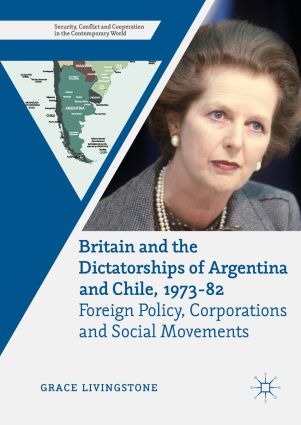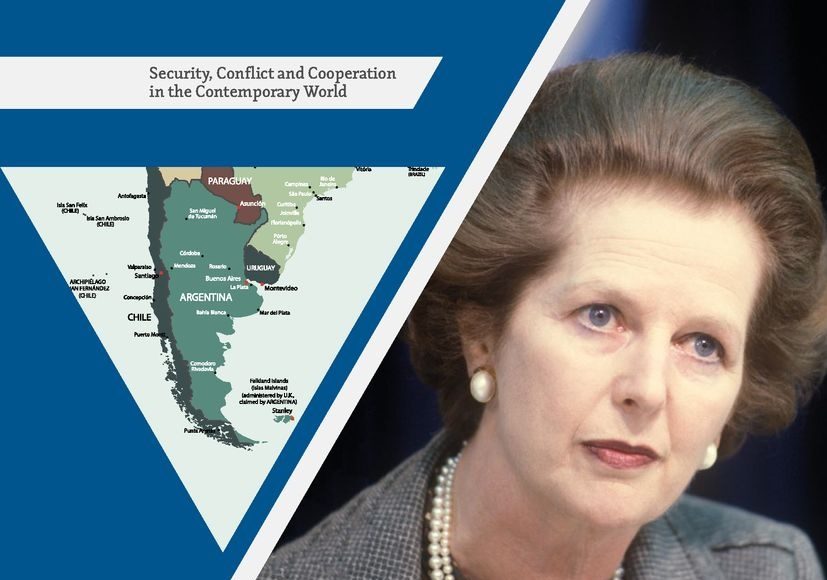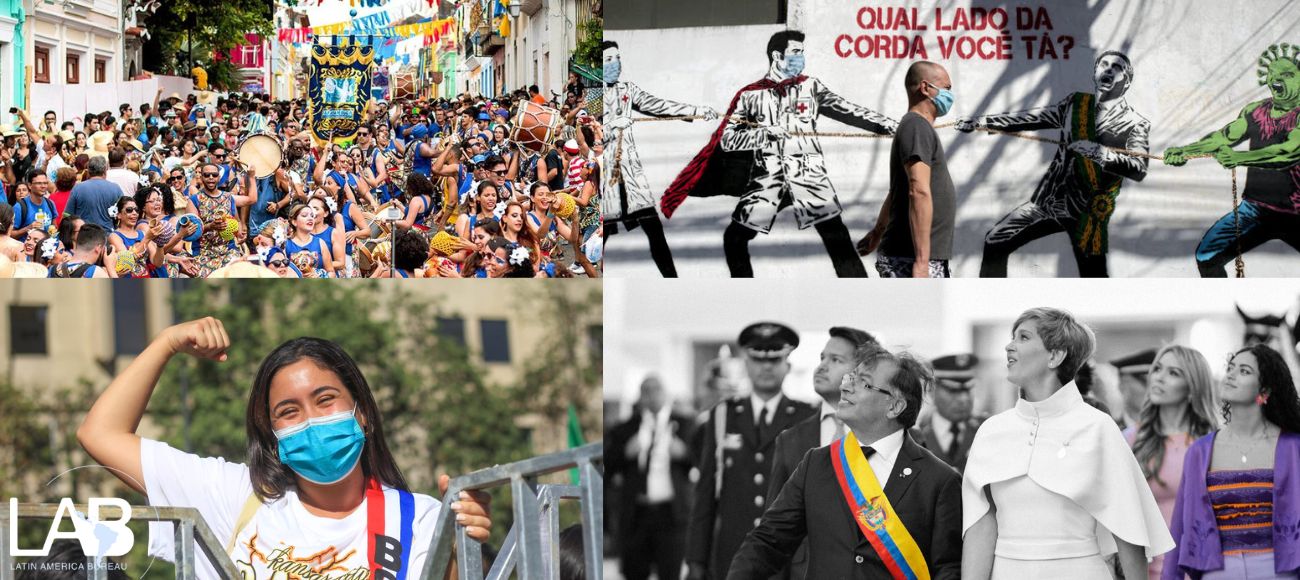Britain and the Dictatorships of Argentina and Chile 1973-82: Foreign Policy, Corporations and Social Movements by Grace Livingstone, Palgrave Macmillan, 2018. ISBN: 978-3-030-08666-4
Reviewed for LAB by Pablo Bradbury
Ask anyone active in the British left during the 1970s and 1980s and they are likely to remember stories about Chile: Hawker Hunter jets bombing the presidential palace, the murderous Pinochet regime (1973-1990), Chilean refugees arriving in the UK. The vibrant Chile solidarity movement left its mark on much of the left in Britain. Indeed, it can still be found in some of the most apparently unlikely places, such as the annual Victor Jara Festival in Machynlleth, El Sueño Existe, where only last year Jeremy Corbyn addressed a lively crowd 1)Mike Gatehouse, ‘Voices at El Sueño Existe, 2019’, Latin America Bureau, 26 September 2019, https://lab.org.uk/voices-at-el-sueno-existe-2019/. In the case of Argentina, on the other hand – despite the fact that a similarly repressive but ultimately more violent dictatorship ruled from 1976-1983 – memories are comparatively dim.

Grace Livingstone’s Britain and the Dictatorships of Argentina and Chile 1973-82: Foreign Policy, Corporations and Social Movements, newly released in its paperback version, provides clues that help explain the disparity in Britain’s relationship with two regimes that were, in important ways, noticeably similar. A compelling comparative study, Livingstone casts a critical eye on British foreign policy, and the factors that shaped these policies, towards each regime.
Over twelve chapters, the book sets out to explain why the Labour governments of 1974-1979 imposed a series of sanctions on Pinochet’s regime and established a specific refugee programme for Chilean victims, while comparatively little action was taken against the even more brutal Argentine junta. The account emphasises the complex interplay between the elite social networks of FCO bureaucracies, interwoven economic and strategic state interests and solidarity campaigners rooted in the labour movement.
One of the interesting aspects of this book is its source material, primarily official government papers declassified in recent years in line with the thirty-year rule. This permits close attention to the FCO’s priorities in dealing with repressive Cold War dictatorships, and officials’ interactions with both ministers and civil society. There will no doubt be further important revelations about Britain’s role in Cold War Latin America, as was seen in a recent investigative article uncovering a secret anti-communist propaganda unit based in the Rio de Janeiro embassy and the Wiltshire site where Brazilian intelligence officers were trained in psychological warfare. 2)John McEvoy and Daniel Hunt, ‘Britain and Brazil’s Dictatorship’, Brasil Wire, 9 July 2020, https://www.brasilwire.com/britain-brazil-dictatorship/
Questions may be asked about the availability of some of the most sensitive papers. We learn from Livingstone, quite alarmingly, that over 300 FCO folders relating to the lead up to the 1982 conflict between Argentina and Britain were destroyed. Nevertheless, the sources that do exist are enlightening. Combined with solidarity campaign materials, governmental and international organisation publications, a wide range of memoirs and interviews (mainly with campaigners, politicians and officials), we get a rich understanding of the plethora of interests vying for influence.
In the five chapters on Chile, Livingstone claims that Britain’s foreign policy towards Chile can be understood as divided into three distinct phases corresponding to the changes in government between the Conservative and Labour parties. While Edward Heath’s Conservative administration reacted rather warmly to Pinochet’s September 1973 coup, the book argues that the Labour government from 1974-1979 established an early example of an ethical foreign policy. This, of course, was subsequently rolled back after Thatcher’s victory.
Livingstone demonstrates the extent to which FCO diplomats, embedded in elite networks and maintaining a pro-business approach, were sympathetic to the dictatorship and suspicious of human rights campaigners (and even spied on them). These departmental officials aligned closely with Conservative ministers at the tail end of Heath’s term, as ‘both agreed that protecting British trade and investment was paramount and that the stability brought by Pinochet was welcome’. Indeed, ‘at times they even appeared to be allies against Labour’.
Unsurprisingly, therefore, the officials seemed at loggerheads with Labour ministers from 1974, confirming for the left a longstanding belief that the civil service was ‘the establishment’s tool for neutralising radicalism’. It is this second phase, under the Harold Wilson and Jim Callaghan administrations, that is most interesting for Livingstone’s objectives. The left, in a period of historic trade union militancy, had been aghast at the violent overthrow of an elected socialist government (Liverpool MP Eric Heffer openly wept upon hearing the news of the coup). And the account shows that despite some resistance from the FCO, campaigners obtained the ear of sympathetic Labour ministers through pressure from party branches, unions and MPs – nine of whom sat on the Chile Solidarity Campaign’s executive.
A microcosm of the tension at play with the FCO can be found three days after Wilson took office. When Judith Hart, the new Minister for International Development who cultivated intimate ties with campaigners, asked Wilson to announce a suspension of aid to Chile, the FCO’s Latin America Department head warned about the negative effect such action would have on trade interests. In this case, the appeal to caution from the FCO won out. Ultimately, however, the results of well-organised pressure from the solidarity movement were significant, despite the Foreign Office’s attempts to steer the Labour government away from campaigners’ demands: arms sales were embargoed, economic sanctions imposed, refugees welcomed and even the British ambassador withdrawn from Santiago in 1976. These interactions between the state on the one hand and civil society activists or business sectors on the other, along with the constant negotiation between elected politicians and departmental bureaucracies, are drawn out skilfully in the book.
Solidarity: why not with Argentina also?
Given the substantial research on Chile’s solidarity activities, it is in the Argentine case where Livingstone covers the more unexplored ground, and she offers persuasive explanations for why the Argentine solidarity movement did not take off like its Chilean counterpart. In drawing out the comparison, she emphasises that while the Cold War context may have been a central part of developments in Argentina, the ideological battle did not appear as clear cut as in Chile, and certainly did not feed into British politics as obviously. One unavoidable aspect of this was the enigma of Peronism, to which the labour movement was unsympathetic: ‘While left-wingers had been inspired by Allende’s peaceful road to socialism, no Labour politician mourned the fall of the Peronist government’.
Added to this, the Argentine Communist Party did not oppose the coup, disorienting the British Communists who had played such an important part in the Chile Solidarity Campaign. Although Livingstone may have discovered greater antipathy towards the military takeover from the International Marxist Group, who maintained some contact with Argentine dissidents within the (loosely-described) Trotskyist left (the ERP-PRT), her point still stands: in the absence of strong social movement pressure, the de facto policy of the Foreign Office towards Argentina was to maintain relations, impose no sanctions and to encourage trade.
There was therefore little discontinuity in policy towards Argentina between the Labour administration and the Conservative government from 1979, and it is here where the contrast with the Chilean case is stark. No sanctions were imposed, a mere twenty refugees were accepted into the UK (compared to 3,000 from Chile) and the arms trade continued in such uninterrupted fashion that the military attaché was still trying to sell bomber planes only days before the 1982 war began. Indeed, only a single MP, Stan Newens, opposed the government’s swift recognition of the junta.
Livingstone reconstructs some of the solidarity groups that did organise, mostly limited to people with a close personal interest in Argentina. She shows how they received a major publicity boost in 1978 around the time of the World Cup, and notes some of the lobbying against the junta from NGOs. The Labour left became increasingly vocal in opposing the junta over the years. But more details emerge from the business sector’s links to the regime and the warm reception met by Finance Minister José Martínez de Hoz’s charm offensive in Britain. As with Chile, an opposition between human rights and business stands out. While some lower-ranking officials and embassy workers actually assisted campaigners, the cosy conservative networks comprising the notoriously elitist Anglo-Argentine community, diplomats and business sectors scolded critical journalists and Amnesty International for highlighting the regime’s violence.
Suitable attention is also paid to the lead up to the 1982 war, offering new evidence that helps explain Britain’s aggressive response. Livingstone rejects the idea advanced by Tony Benn, as well as many Argentines, that Britain was primarily motivated by oil, though she provides documentation that shows that interest in off-shore reserves certainly played a part in lobbying for the retention of sovereignty. Instead, the fear of domestic criticism over losing sovereignty weighed most heavily on the thinking of Thatcher’s administration.
Here too, the left’s response was rather mixed. Human rights campaign groups took practically no formal positions on the dispute in the years leading up to the coup, and when war broke out Judith Hart advocated a negotiated solution while Stan Newens backed the British task force, exemplifying the divisions among anti-junta figures. The more successful campaign was that of the Falkland Islands lobby, funded by business groups, fronted by establishment figures and backed by some of the Labour right as well as many Tories.
However, probably the most ironic aspect of the whole affair concerned arms exports. Under pressure from arms manufacturers and the Ministry of Defence, before the war the FCO ‘approved export licences for several items which violated their own guidelines on the Falklands and human rights’ – arms that posed a threat to Britain’s hold of the islands.
From the playing fields of Eton
In the field of Foreign Policy Analysis, Livingstone’s study develops an interesting conceptual approach foregrounding social class and the elite informal networks of civil service bureaucracy in understanding the decision-making process. The Foreign Office, in particular, was ‘the preserve of the upper-class public school-educated Oxbridge graduate’ (75% of officials attended fee-paying schools). This is illustrated by the second appendix detailing a survey of diplomats working on Argentina and Chile. And it certainly helps to explain why the range of views among FCO officials ‘remained within a narrow spectrum from conservative to conservatively moderate and all new recruits imbibed the ethos of gentlemanly capitalism that permeated the institution’.
By focusing on British foreign policy and the pressure from solidarity campaigners, the study builds on a trend among scholars of providing correctives to the overwhelming attention traditionally paid to US influence in Latin America during the Cold War. But assessing the impact of social movements on foreign policy runs a risk of a reductionist understanding of international solidarity: to what extent is or should the function of the international solidarity be to impact the government in the country in which it is based? Certainly, the most obviously quantifiable way to judge such a movement’s success is to look at how far that government accedes to demands made on it. But exiles, solidarity activists and human rights campaigners do more than this, building internationalism and transnational spaces, circulating information within and across countries, seeking to apply direct pressure on authoritarian regimes themselves and providing support to refugees and other migrants.
To be clear, this is not so much a criticism as a caveat to Livingstone’s approach. In fact, she acknowledges this limitation, referring to the story of trade union solidarity at the Rolls Royce factory in East Kilbride recently recounted in Felipe Bustos Sierra’s poignant documentary, Nae Pasarán: ‘who can measure the psychological impact on the political prisoner in a Chilean jail who heard on his transistor radio that trade unionists 8000 miles away in Scotland were showing their solidarity by refusing to work on Chilean warplane engines?’ 3)https://www.bbc.co.uk/programmes/m0002wsm
Overall, the book is undoubtedly a highly original and significant contribution to literature on both British foreign policy during the Cold War and international human rights/solidarity movements. Livingstone combines a theoretically-informed and keen analytical eye with the detective nous of an investigative journalist, making not only for an outstanding piece of research but also an enriching read. Moreover, although very clearly an academic study, its value extends beyond the historiography and into the realm of political practice: the approach taken and the conclusions reached can also inform solidarity and human rights campaigners trying to influence foreign policy today.
References
| ↑1 | Mike Gatehouse, ‘Voices at El Sueño Existe, 2019’, Latin America Bureau, 26 September 2019, https://lab.org.uk/voices-at-el-sueno-existe-2019/. |
|---|---|
| ↑2 | John McEvoy and Daniel Hunt, ‘Britain and Brazil’s Dictatorship’, Brasil Wire, 9 July 2020, https://www.brasilwire.com/britain-brazil-dictatorship/ |
| ↑3 | https://www.bbc.co.uk/programmes/m0002wsm |


